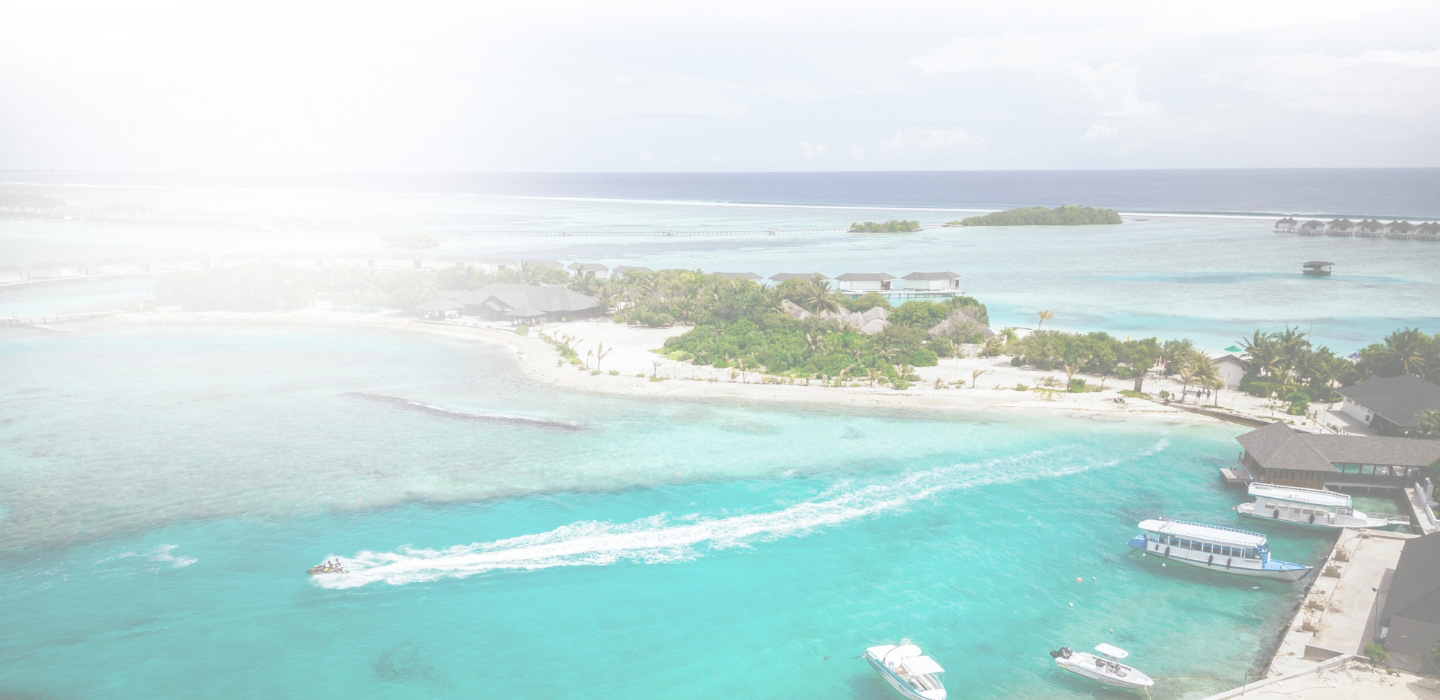Our ESG (Environmental, Social, and Governance) strategy is woven into the very purpose of our existence, intricately integrated throughout our entire value chain, our operations, and our communities, and at every level of our organisation. Our corporate governance stance is not about ourselves, but more about setting sustainable standards that benefit everyone through humanitarian and conservation initiatives and advocacy.
Environmental Impact

Protecting our Natural Heritage
We believe that biodiversity is humanity’s lifeline and conserving it ensures it stays that way. Our approach involves fostering mutual respect between humanity and nature, striving for a balance that benefits both our planet and future generations. Sri Lanka has a natural heritage of a high biodiversity with broad climatic, floristic and faunal zones with one of the highest numbers of plants and animal species per unit area, including many that are endemic to the region. Similarly, the Maldives has an equally impressive natural heritage of marine biodiversity with a diversity ranging from corals, molluscs and sharks, to whales and turtles.

The ‘Zero Waste to Landfill’ Journey
We're committed to reducing waste throughout our operations and embracing a circular economy model across our value chain. This means we measure and drive waste reduction, divert waste from landfills, increase recycling, reduce single-use plastic, and address waste-related risks. We collaborate with partners to transition towards closed-loop solutions, where resources are reused or recycled. We work closely with both local and national waste vendors and recyclers to find the most sustainable solutions for our hazardous and non-hazardous waste. Non-hazardous waste constitutes 94% of our operational waste. Following the 7R waste management concept—Replace, Rethink, Refuse, Reduce, Reuse, Recycle, and Repair—we manage our footprint with the aim of achieving zero waste to landfill by 2025.

Our Journey to Zero Plastic
Since 2020, we've been dedicated to eliminating single-use guest-facing plastics. We aim to rid all guest spaces of these plastics by 2030, driven by our deep concern for environmental issues like the Great Pacific Garbage Patch and microplastic contamination in our ecosystems. Our approach has been strategic, targeting significant contributors to single-use plastic consumption. Since 2020, we've successfully eliminated 65% of these plastics from our operations. Notably, our resorts in the Maldives have reduced single-use plastic by 86%, while our Sri Lankan hotels have achieved a 76% reduction.

Powering the Future
Our journey towards good, clean energy began with an internal review of our energy usage, helping us set specific local targets. Our next step was to align our targets with industry standards, so we partnered with EarthCheck Pte Ltd. for a comprehensive analysis aimed at systematically reducing our current footprint, benchmarking against industry standards and regional leaders.

More Responsible Water Practices
We're deeply committed to responsible water stewardship. Our strategy includes investing in cutting-edge technology to enhance water efficiency throughout our operations. We run regular awareness programmes for both guests and our colleagues, aimed at promoting responsible water consumption. Additionally, we actively engage in water recycling and reusing practices. One of our key focuses is on harvesting rainwater and safeguarding the water bodies surrounding our hotels and resorts. By 2025, our target is to reduce water consumption by 10 litres per guest night, and we're already making significant progress, having reduced consumption by 76 litres per guest night.
Social Impact
Empowering Our People and Communities
We believe that every action we take must result in the betterment of our people and supporting our colleagues and community. Whether it's protecting human rights, empowering marginalised communities, creating opportunities for the future generation, or supporting women through vocational training, we are committed to giving back to those who inspire us to do good. Moreover, we stand firm in our dedication to fostering a culture of support and collaboration among our colleagues and within our broader community, recognising that together, we can achieve far more than we ever could alone.

Empowering Communities
Our communities are at the heart of everything we do. We strive to nurture their potential, provide opportunities, and address critical issues such as food security, human-elephant conflict, child malnutrition, and abuse. Our goal is to create a safer and better country for all our people.
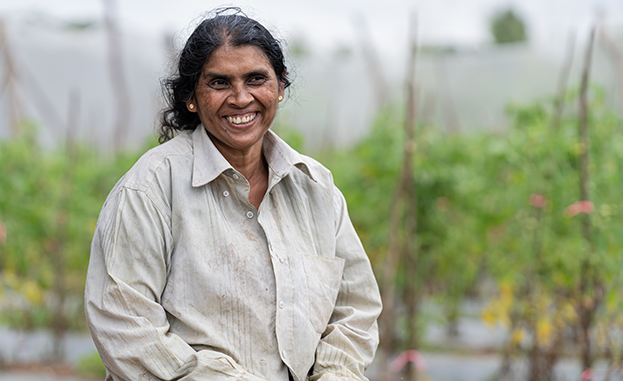
Our six pillars of community engagement are:
Education: We aim to improve access to education for those in need, enhancing their employability and entrepreneurial skills.
Environment: We are committed to minimising the impact of our operations and promoting conservation and sustainability to enhance our environmental and natural capital.
Health: We work towards fostering healthy communities that contribute to the well-being and productivity of our country.
Livelihood: We support sustainable livelihoods through skills development, capacity building, and infrastructure enhancement, empowering communities to thrive.
Art & Culture: We seek to nurture artists' livelihoods and preserve our cultural heritage, safeguarding and promoting local arts and culture.
Disaster Relief: In times of adversity, we stand by our communities, enabling them to rebuild their lives and livelihoods.
Partnerships for a Sustainable Supply Chain
A sustainable supply chain is crucial for building a sustainable business. Our focus on uplifting local communities surrounding our hotels and resorts not only aligns with empowering communities, but also reduces the risk of supply chain disruptions. We ensure our suppliers share our ethos through a rigorous and transparent selection process.
Buying Local, Supporting SMEs
We are committed to local sourcing whenever possible. This not only directly benefits the community but also reduces the risk of supply chain disruptions, enhancing our unique guest experience. Presently, almost 77% of our suppliers are from nearby communities, with 80% being SMEs (Small and Medium Enterprises).
Suppliers undergo a transparent tender process, considering documented social, environmental, and financial criteria. We prioritise suppliers from local communities, contributing to the economic upliftment of these areas. Continuous audits, visits, and impact assessments help us identify and address social and environmental risks in our supply chain. Additionally, we provide necessary training to uplift their practices, further reinforcing our commitment to our communities.

Little Stories, Big Impact
Bees that Sustain Life
We're buzzing with excitement to announce our beekeeping pilot project at our resorts in Habarana. In collaboration with the John Keells Foundation, the project aims to uplift the livelihoods of 15 beekeepers by creating an additional source of income and a sustainable source of bee honey for our resorts. The next phase of this project will be to expand to communities surrounding our other properties.
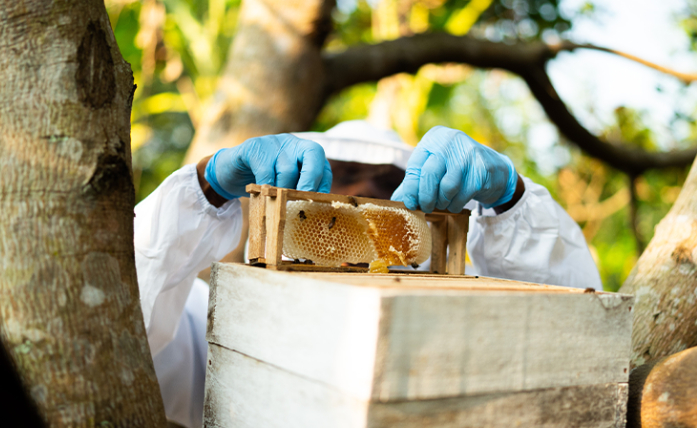
The Good Water Project
Can you imagine a world without water? The Good Water Project, a joint initiative of MAS Foundation, JKH, and Cinnamon Hotels & Resorts, aims to prevent plastic debris from entering the Indian Ocean, thus protecting the marine environment. We install strainers at locations around our hotels to achieve this goal.
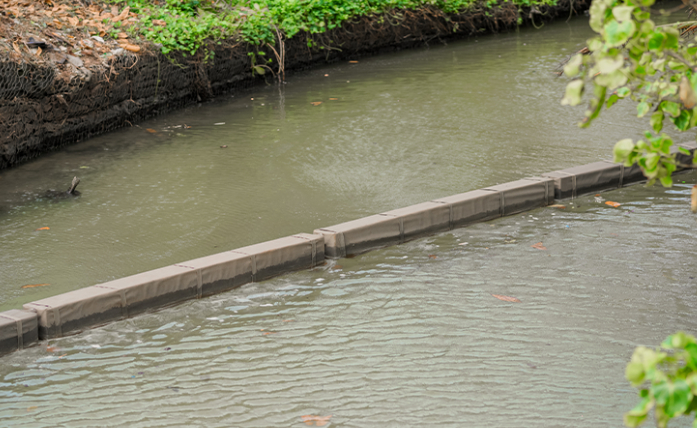
A Kadjan Roof Over Our Head
The weaving of kadjan roofing material in the Maldives is a traditional craft passed down through generations. Kadjan, also known as thatch, is a natural roofing material made from the leaves of the hura tree, abundant in the Maldives. The Ellaidhoo Maldives by Cinnamon team collects dried coconut leaves from resort premises and collaborates with the Hangnaameedhoo ladies to create roofing covers (Kadjan) for public areas such as reception, restaurants, and the diving centre. Weaving kadjan roofing material is not only a craft but also a cherished tradition that connects people to their cultural heritage and the natural resources of their island nation.
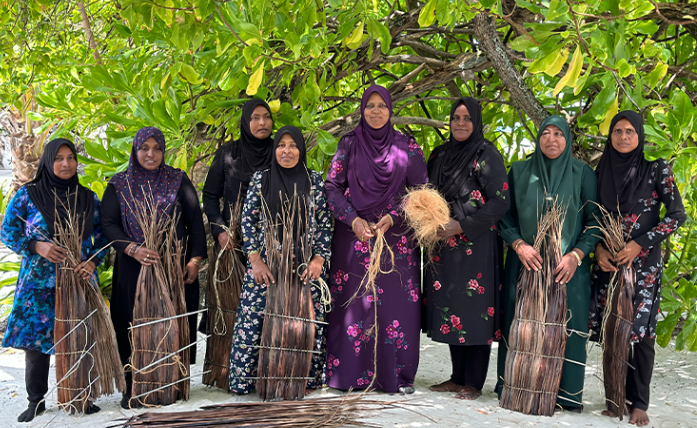

We Don’t Compromise on Responsible Conduct
We deeply believe in transparency, accountability, and ethical business practices. Our governance approach aims to ensure the responsible management of our hotels and resorts, fostering trust with stakeholders and nurturing a culture of integrity and compliance. We're dedicated to maintaining a robust governance structure that aligns with industry best practices and regulatory requirements.

Corporate Governance Principles
We uphold a set of corporate governance principles guiding our decision making processes, promoting transparency, and fostering accountability. These principles embody our commitment to ethical conduct, fairness, and respect for all stakeholders.
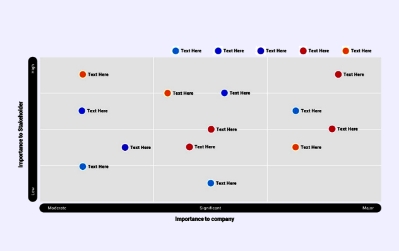
Risk Management
We understand the significance of identifying, assessing, and managing risks to our business. Our risk management practices aim to protect the interests of our guests, colleagues, and shareholders while preserving the reputation of our hotel chain.

Compliance and Ethics
We maintain a strong focus on compliance with laws, regulations, and industry standards. Our ethics policies and procedures ensure that all our colleagues uphold integrity and align with our core values.



Awards & Accolades
We're thrilled to have received recognition for our sustainability efforts.

Environmental Finance awarded us the Sustainable Company Awards for our nature-based initiatives in APAC 2022.
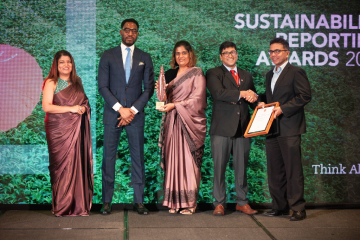
ACCA Sri Lanka honoured us with the Sustainability Reporting Awards 2022 in the Leisure and Connected Services category, celebrating our commitment to sustainable practices.
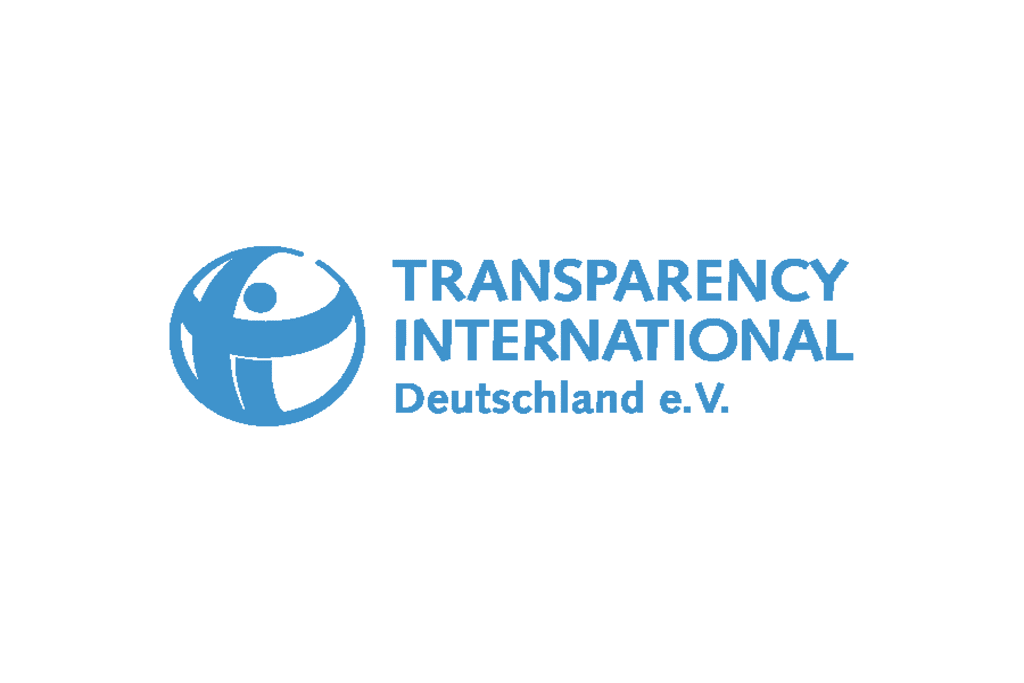
Transparency International Sri Lanka (TISL) ranked John Keells Hotels 10th in Transparency in Corporate Reporting Assessment (TRAC) 2022.


 ENG
ENG FRA
FRA DEU
DEU CHN
CHN RU
RU IT
IT







